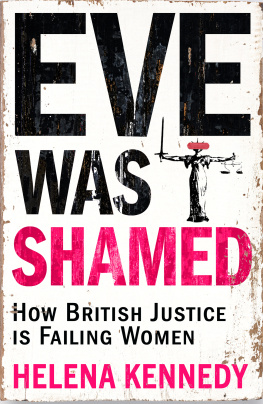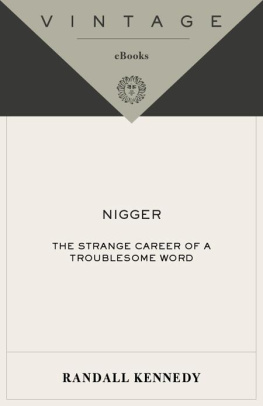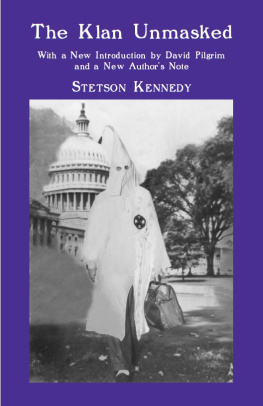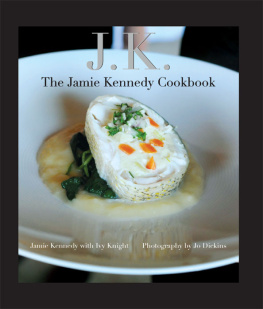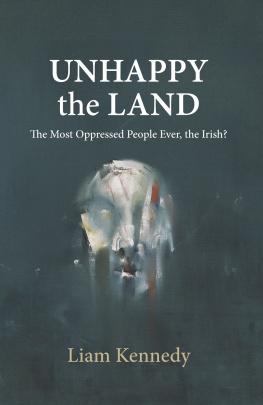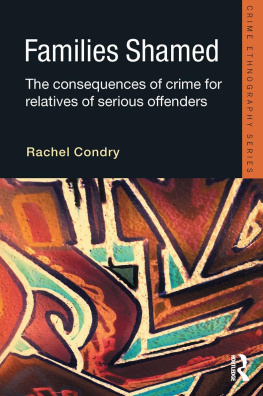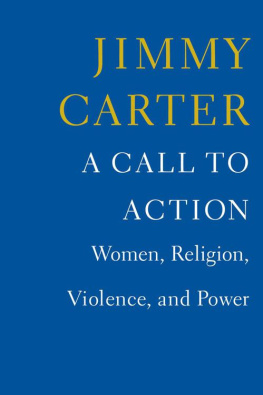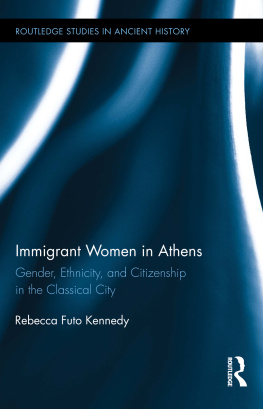C ONTENTS
A BOUT THE B OOK
What comes after #MeToo? One of our most eminent lawyers and defenders of human rights answers with this urgent, authoritative and deeply shocking look at British justice
In Eve Was Shamed Helena Kennedy forensically examines the pressing new evidence that women are still being discriminated against throughout the legal system, from the High Court (where only 21% of judges are women) to female prisons (where 84% of inmates are held for non-violent offences despite the refrain that prison should only be used for violent or serious crime). In between are the so-called lifestyle choices of the Rotherham girls; the failings of the current rules on excluding victims sexual history from rape trials; battered wives being asked why they dont just leave their partners; the way statistics hide the double discrimination experienced by BAME and disabled women; the failure to prosecute cases of female genital mutilation the list goes on. The law holds up a mirror to society and it is failing women.
The #MeToo campaign has been in part a reaction to those failures. So what comes next? How do we codify what weve learned? In this richly detailed and shocking book, one of our most eminent human rights thinkers and practitioners shows with force and fury that change for women must start at the heart of what makes society just.
A BOUT THE A UTHOR
Helena Kennedy QC is one of Britains most distinguished lawyers and public figures. She is a regular broadcaster, journalist and lecturer and throughout her career has focussed on giving voice to those who have least power in the system, championing civil liberties and civil rights. Her 1992 book Eve Was Framed led to a number of key reforms for women and was followed in 2004 by Just Law. She was the Master of Mansfield College, University of Oxford, from 2011 to 2018, and was awarded a life peerage in 1997. Born in Glasgow, she lives in London.
ALSO BY HELENA KENNEDY
Eve Was Framed Just Law
To the new generations of feminists in the law
I NTRODUCTION
WE ALL FIND our own way to feminism. I did not come to the Bar in the early seventies as a feminist looking for slights against women. When I started studying law I was not particularly conscious of womens issues, except inasmuch as they were part of my general concern about what happened to working-class people when they sought justice. I was a child of the Glasgow tenements with strong class politics, which informed my way of seeing law. When the womens movement gathered steam I was in my early twenties, I went to the meetings, read the books and carried the banners, but it was at the coal face that I really learned a deep and visceral understanding of feminism, in the cells with my clients, in community advice centres and refuges, and most of all in courtrooms. Those experiences in turn fired memories from my childhood of blighted womens lives.
Two decades later I published Eve Was Framed, my book about women and the British justice system, and I was overwhelmed by the response. Laying out the laws failure to provide justice for women was highly contentious, especially within the profession and among the judiciary, but many women wrote to me, confiding in me their experiences of abuse and violence, which they had never taken to the courts. Some had told people in authority but had not been believed, though most remained silent because they knew that they would be accused of lying, exaggerating or fantasising. This response to the book seemed like a victory, but you dont need me to tell you that these concerns are exactly the same as the ones still raised by women today.
My passion to reshape the world has never subsided and, despite halting progress, I am still subject to surges of real hope. Over the last few decades the wall of silence about the abuse of women and children has been breached. Domestic violence and rape are now firmly located on the political and public agendas. And every now and again something happens which persuades me that at last we are reaching the uplands in the struggle for womens equality. The #MeToo campaign which went viral after the Harvey Weinstein scandal rocked Hollywood in 2017 has captured a mood that has been gathering force for several years, at least since the original Me Too movement was started by Tarana Burke in 1997. It is not just about celebrities and the abuse of the casting couch. It is about much more than predatory men with power in the film industry. It is about the way women have to live their lives and the debasing wretchedness of continuing gender inequality. The new element has been the Internet and social media. It has stirred a rage that has reverberated around the world and led to a huge wave of online disclosure. It has turned the spotlight on the harassment of models in the fashion industry and then moved on to Parliament, with political heads rolling and systems put in place to deal with sexual harassment there . No workplace seems safe from the naming and shaming of men abusing their power. It has turned to Oxfam, Save the Children and the charity world with the disclosure of male workers in crisis-stricken Haiti using young desperate women for prostitution and men in the upper reaches of these organisations behaving in disrespectful ways towards women. The whole Weinstein tsunami has been described as a watershed, a seismic response to laws failure.
The surge of confidence was growing well before the #MeToo campaign. There was the Oxford student Ione Wells who was attacked and almost raped in London. She threw off the mantle of anonymity and expressed a public refusal to be silenced and ashamed for being on the receiving end of a sexual assault. There are the incredible women from minority communities, like the Southall Black Sisters and members of the Iranian and Kurdish Womens Rights Organisation, who challenge discriminatory asylum and immigration policies as well as cultural practices like female genital mutilation, forced marriage and honour killing, which are violations of human rights. Or the fabulous women in the Glasgow Disability Alliance who have unveiled the extent to which women with disabilities are exposed to disproportionate sexual abuse and domestic violence. There is Laura Batess brilliantly inventive Everyday Sexism Project, which provides a space for sharing the ways in which offensive remarks and conduct are a persistent feature of womens lives and are normalised. There has been the launch of the Womens Equality Party, and the creation of the Centre for Womens Justice by the tireless solicitor for women Harriet Wistrich. There are the students in universities who are demanding a change in the culture of entitlement they feel is enjoyed by young men. There is the growing clamour of voices in television and sport demanding that the salaries of men are published so that women doing the same jobs can see if they are getting equal pay.
It was in 2012 when the deceased celebrity entertainer Jimmy Savile was exposed as a paedophile and gross abuser of women and children that we seemed to reach a tipping point. As more cases emerged, suddenly the institutions from the BBC to Parliament, from hospitals and schools to young offender institutions, from local authorities to universities and churches, all of which had colluded in keeping the lid on such crimes were in retreat. Every one of these pillars of rectitude had put institutional reputation ahead of safeguarding women and children. The outrage was so deeply felt and the torrent of memories, anger and sorrow so great that a public debate raged, of a kind that had never taken place before. A public inquiry was set up by the then Home Secretary, Theresa May, in recognition of the extent of the problem. I kept hearing the same questions. How could so many predators have got away with it? Why did people do nothing? Was it because things were different then?

